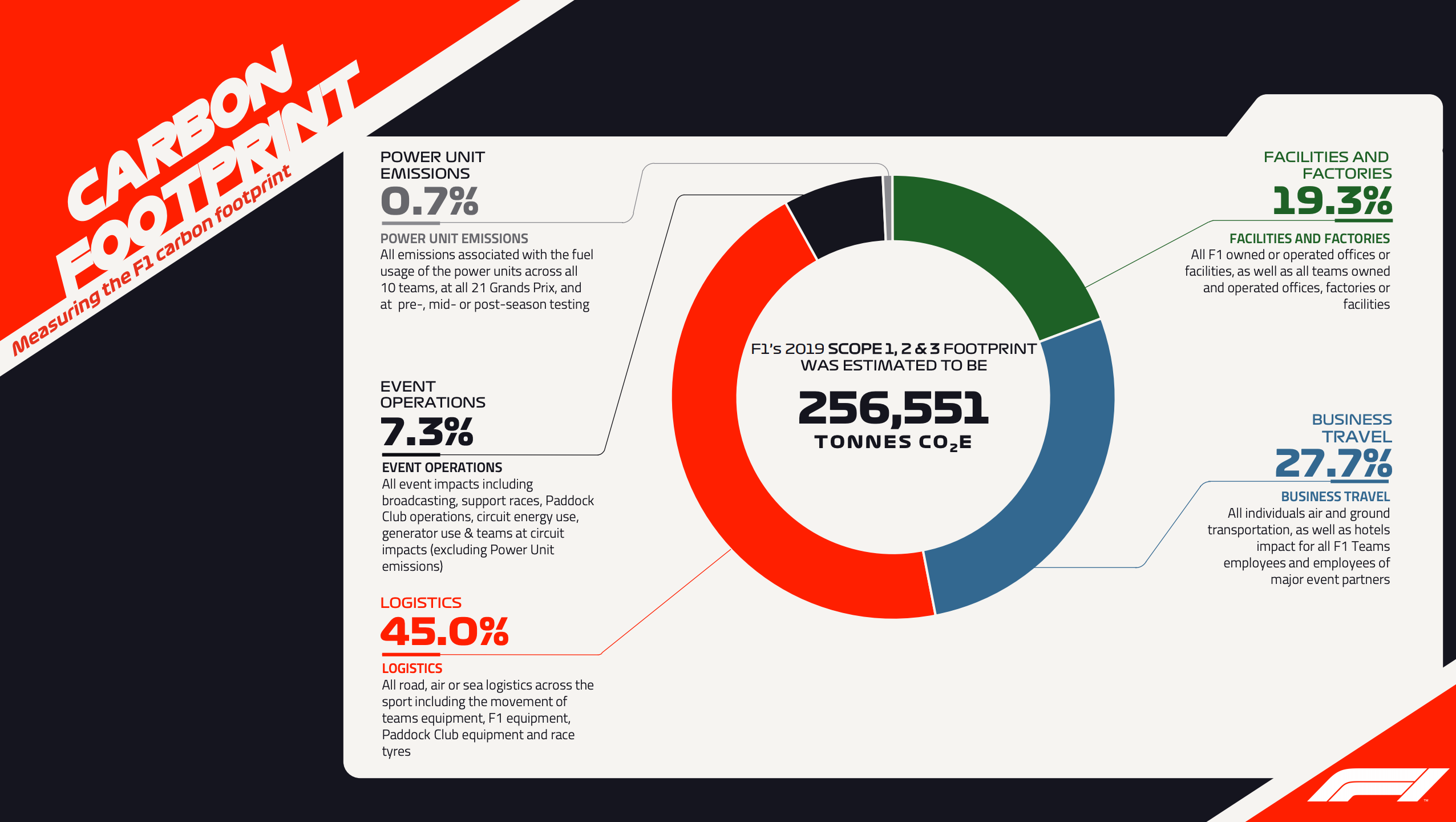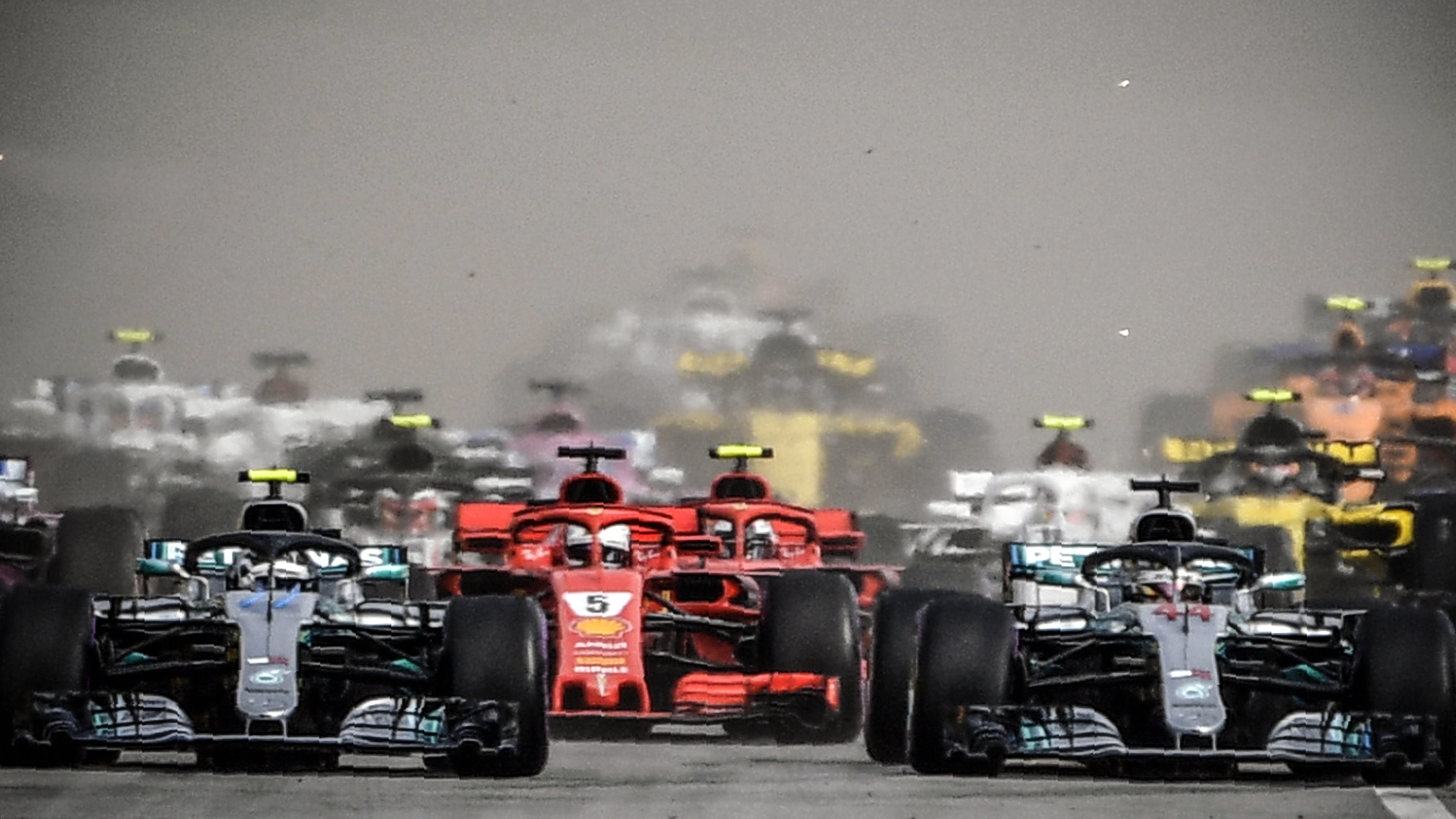Formula One Plans To Go Carbon Neutral
While the world becomes more environmentally conscious, motorsport overall has been susceptible to criticism for what is arguably a pretty extravagant use of resources. As a result, Formula One has released a sustainability plan that aims to have the series have a net-zero carbon footprint by 2030, with all events being sustainable by 2025.
The plan is the result of a year's worth of research, F1 reports, and was shared with teams at the Mexican Grand Prix. The full sustainability strategy is available in PDF form on F1's corporate website, located here.
In that PDF, F1 notes that its 2019 emissions were said to be 256,551 tons of carbon dioxide, which would be the equivalent to your daily driver using 28,868,122 gallons of fuel in a year. Forty-five percent of those emissions come from what F1 calls "logistics," or all the air and sea travel required to ship equipment around the globe. The actual racing events itself only compose about eight percent of the total emissions.

To combat this, F1's plan is pretty comprehensive. For the 2025 goal of event sustainability:
This will mean the use of sustainable materials at all events with single-use plastics being eliminated and all waste reused, recycled or composted. Additionally, F1 will provide incentives and tools to offer every fan a greener way to reach the race and ensure circuits and facilities enhance fan wellbeing and nature as well as providing opportunities for local people, businesses and causes to get more involved in the action during a Formula 1 race weekend.
That in itself is a pretty ambitious goal, but not an impossible one considering the fact that F1 events themselves aren't even the main source of emissions. And this does seem to put some more emphasis on changing fan behavior than series behavior. Getting rid of plastic cups for fans seems pretty paltry when compared the the sheer amount of equipment that's shuttled from race to race. And there's not yet any information on sustainable travel for fans. Does that mean electric shuttles? Limiting parking? We've sent an email to Formula One in an attempt to gain a more meaningful, concrete answer to some of these questions and will update when they respond.
By 2030, F1 says we can expect net zero carbon powered race cars, more efficient travel, renewably powered facilities (such as factories and team offices), and carbon dioxide sequestration programs.
These are, admittedly, some pretty big goals, especially the ones regarding the functioning of team facilities and travel. And it still leaves open a lot of questions about the sport as a whole. In a sustainable world, can there be room for the petroleum sponsorships that currently decorate F1 cars and funnel money into the sport? Should F1 be traveling around the world if travel is such a detriment—or should the calendar be cut down to events closer to Europe? Again, we've emailed F1 in an attempt to clarify logistics.
F1 is asking a lot here—both of fans and of teams—and it isn't yet providing any clear-cut answers as to how these ambitious goals will be met. It's a noble goal, yes, in the same way that Formula E is noble in its intentions. But it's all that other stuff, the travel and logistical issues, that add up.
It's going to be one hell of a hard time, and F1 has yet to release any detailed plans regarding the actual implementation of its sustainability proposal. Those will, likely, come with time. But it's tough not to be skeptical.
